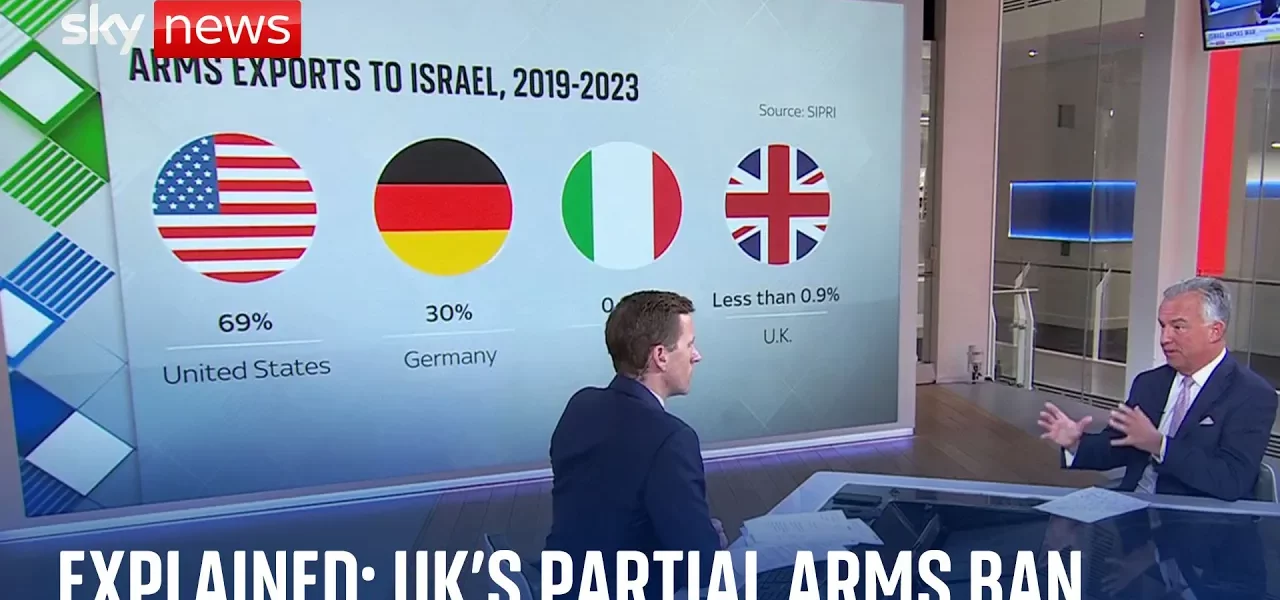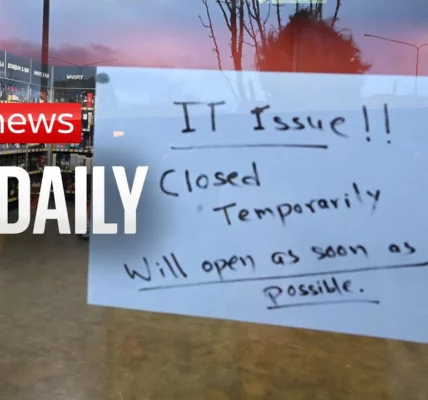Understanding the Significance of the UK’s Defense License Suspension

The recent suspension of certain defense licenses by the UK government has raised important discussions around international law, arms trade, and the complex relationship between the UK and Israel. This article delves into the implications of these actions and their potential impact on future negotiations and defense exports.
Introduction
The UK’s decision to suspend specific defense licenses has stirred considerable debate among policymakers and analysts. While David Lamy clarified that this action does not constitute an arms embargo, it signifies a response to concerns over the potential misuse of military equipment. With only a fraction of licenses affected, this article aims to assess the broader implications of the suspension, particularly in relation to the ongoing Israel-Hamas conflict and the UK’s defense relationship with Israel.
The Context of the License Suspension
Understanding the rationale behind the UK’s suspension of defense licenses requires a closer look at the current geopolitical climate. Here are some key points surrounding this context:
- Risk of Breach: The UK government expressed concerns that some weapons could be used in violation of international law.
- Limited Impact: Out of approximately 350 licenses, only 30 are impacted by this suspension, representing a minimal portion of the UK’s defense trade.
- Economic Considerations: The UK recorded a defense trade value of £8 million in the previous year, which constitutes less than 1% of the overall defense export market.
The UK’s Defense Trade Landscape
Despite the suspension, the UK maintains a relatively small share in the global defense export market. Here’s a breakdown of the situation:
Comparative Export Statistics
When evaluating the defense export landscape, it becomes evident that:
- The United States and Germany dominate the market, significantly outpacing the UK.
- Italy also plays a key role, whereas the UK’s contributions are markedly limited.
Components of Defense Trade
The suspended licenses primarily pertain to components for various military equipment, with notable exceptions:
- The F-35 fighter jet spares were not included in the suspension.
- This is critical as the F-35 is actively utilized in the ongoing military operations in the region.
The UK-Israel Defense Relationship
The relationship between the UK and Israel transcends mere arms trading. It encompasses a range of collaborative efforts, particularly in intelligence sharing. The implications of suspending defense licenses can be examined through several lenses:
Intelligence Collaboration
Maintaining a strong intelligence relationship is vital for both nations. The UK must navigate carefully to avoid compromising this collaboration.
Future Business Opportunities
Turning down defense exports could jeopardize future business dealings and limit the UK’s influence over Israel, particularly in negotiation contexts.
Economic Impact
Defense exports contribute significantly to the UK economy, generating billions and creating numerous jobs. The discourse surrounding arms trade often characterizes it as controversial, yet it remains a crucial aspect of national defense strategies.
Negotiation vs. Military Action in Hostage Situations
As the Israel-Hamas conflict progresses, the focus shifts towards the pressing issue of hostages. Analyzing Netanyahu’s dual objectives reveals a complicated scenario:
Current Hostage Situation
Reports indicate that 251 hostages are believed to be held, including both Israelis and foreign nationals. The statistics surrounding their release are concerning:
- Only eight hostages have been liberated through military action since the conflict’s onset.
- Conversely, political negotiations have proven significantly more effective, as demonstrated by a ceasefire that successfully released over 100 hostages.
Strategic Approaches to Hostage Release
The data suggests that negotiation remains the most viable path to securing the release of hostages. This is especially pertinent now as the conflict in Gaza appears to be de-escalating, prompting increased internal pressure on Prime Minister Netanyahu to act.
Conclusion
The suspension of defense licenses by the UK is a complex issue intertwined with international law, economic implications, and the broader geopolitical landscape. As the UK navigates its defense relationship with Israel while addressing the challenges posed by the ongoing conflict, the focus on political negotiation for hostage release becomes increasingly critical. Stakeholders must consider the potential long-term effects of these actions on future diplomatic engagements and defense strategies.
For more insights on international relations and defense strategies, be sure to explore our related articles.
“`




